News

A mini budget in the offing amidst political impasse
The unexpected and sudden political crisis caused the constitutional coup triggered by President Maithripala Sirisena along with the prorogation of parliament till November 16 has placed officials of the Treasury in a dilemma as they are considering the option of preparing a vote on account instead of the calendar year Budget 2019.
Chairman of SLPP, Prof. G.L. Pieris told reporters that they were planning a vote-on-account after parliament was suspended until November 16.
The Ministry of Finance is awaiting for directives from the president to go ahead with the preparation of Vote on Account on Monday.
Economic experts point out that it would be appropriate to present a mini budget rather than the annual one as the country is facing a political crisis with elections around the corner.
They added that presenting a Vote on Account in view of an election is not new to Sri Lanka and previous governments have also followed this procedure before.
The Vote on Account, if presented in November, will be to cover state expenditure for a few months.
The time period (number of months) of the vote of account will be decided after the announcement of the date of elections, a government official said.
The Finance Ministry has launched the 2019 budget process presenting an Appropriation Bill making allocations for individual ministries ahead of the 2019 budget to be presented to parliament on November 5.
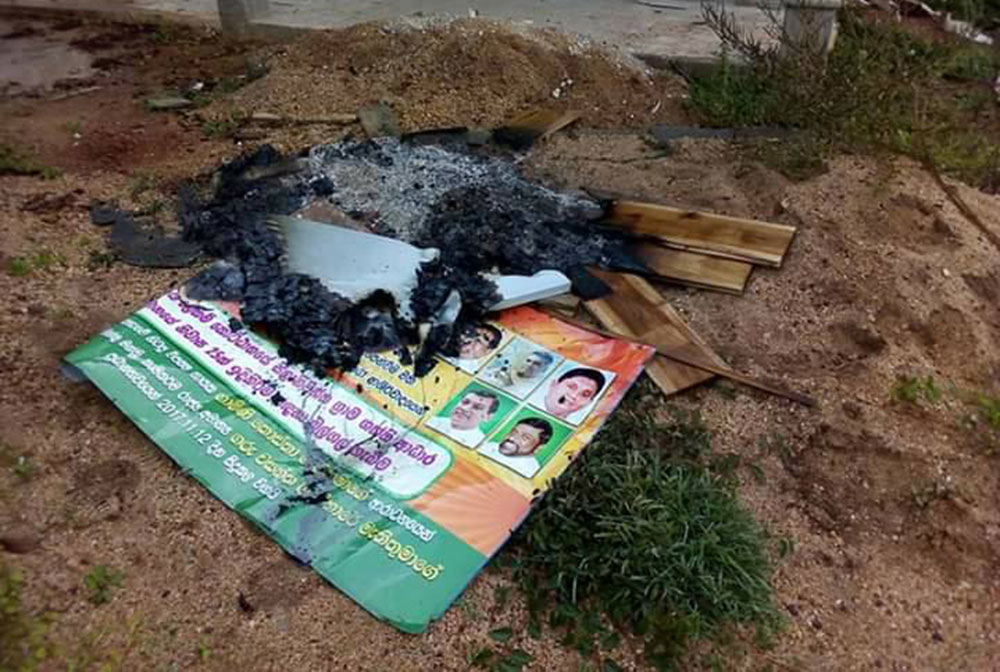
SLPP goons attack and destroy public property
Reports are trickling in of politicos and goons supporting the Sri Lanka Podujana Peramuna and the Sri Lanka Freedom Party have commenced attacking various public property and development projects being carried out by the government.
ISIS news has received several images of such attacks carried out on a village being constructed in Tissamaharama by the Housing Development Authority.
https://casite-790485.cloudaccess.net/news?sa=U&start=4500#sigProIdefe081157e
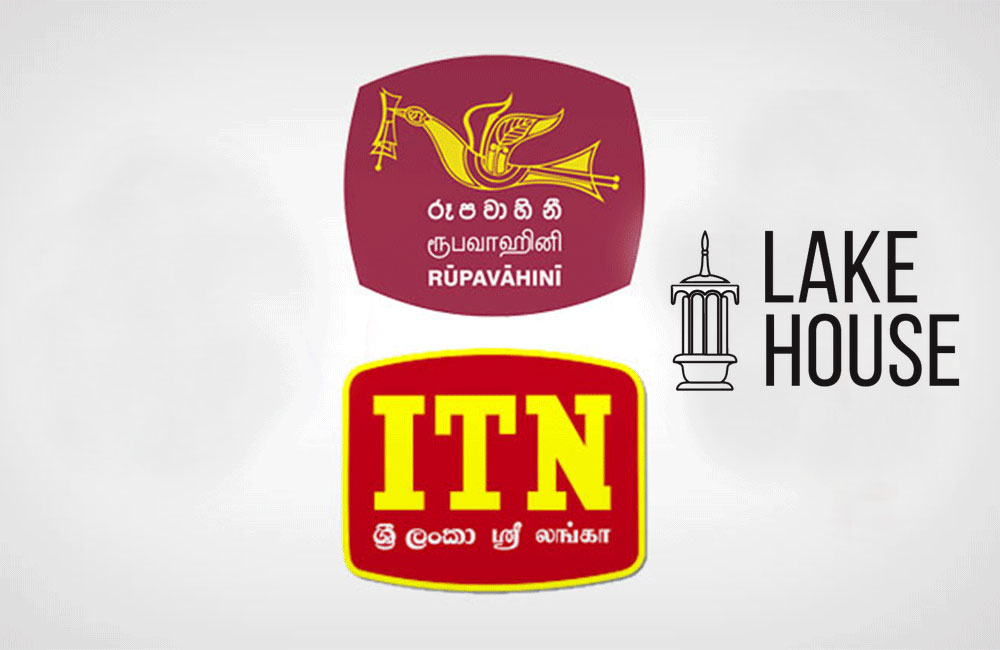
SLPP's Hunt for journalists commences with state media - ITN Rupavahini and Lake House staff intimidated and forced out
The unconstitutional government is said to have commenced a hunt for a chosen list of journalists in state media according to sources. The hunt started on the day of the swearing in of Mahinda Rajapaksa itself when ITN Chairman Subhash Jayawardene was attacked by a mob when trying to leave the premises. He was also issued death threats by the group.
Sources also say employees of ITN such as Current Affairs producer Dhammika Yatinkinda, journalists Daya Neththasinghe, Shalika Wimalasena and Jayasiri Alawatta have been asked to not return. Similar warnings were also issued to news readers Supun Bhagya and Dinushi Weerasinghe. They have been told to meet Sudharman Radaliyagoda if they want to keep their jobs. Sources also say Sudharman who is warranted for corruption related offences and was protected by the President is now armed and remaining within the ITN premises.
Likewise Sanjaya Liyanage of Rupavahini news has also been asked not to return and issued death threats.
Meanwhile tweeting Editor of the Sunday Observer Dharisha Bastians also claimed she was ousted as she refused to be coerced in to taking an editorial like forced upon by SLPP supporters within the organization. The Daily news had also been forced to change it's front page on Saturday by the SLPP union goon Sanjaya Bandara at Lake House along with several senior journalists within the organization.
Sources within Lake House say it's publications are being monitored and being published according to the whims of certain government agents close to the President who had visited the editorials on Saturday to ensure no negative articles against the Rajapaksa's are published.
He was seen accompanied by SLPP union representatives and journalists such as Mahinda Aluthgedara of Dinamina and Sandasen Marasinghe of the Daily News.
However responding to Bastian's tweet Namal Rajapaksa denied any knowledge of any such occurrence within the organization.
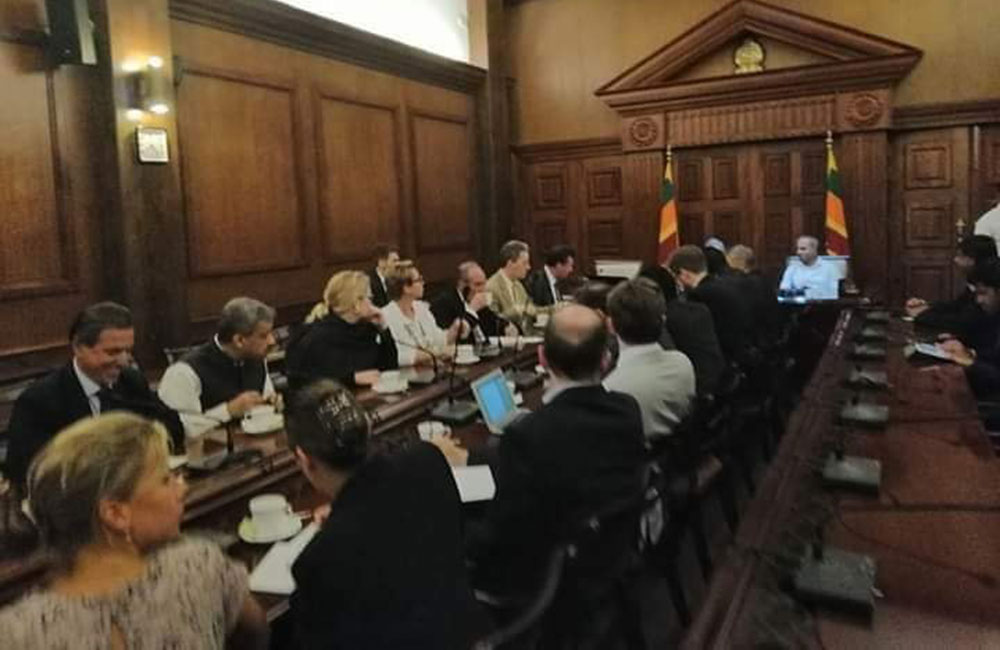
Ambassadors vow to oppose anti-Constitutional activities!
The foreign Ambassadors and High Commissioners have assured Ranil Wickremesinghe to oppose any activity that is in violation of the Constitution.
They made this pledge during a meeting held with Ranil Wickremesinghe at Temple Trees today (27).
The Indian Deputy High Commissioner, Australian High Commissioner, EU representatives and Japanese, US, Canadian and South African Ambassadors attended the meeting with Ranil Wickremesinghe.
The Prime Minister had told the diplomats that he had established democracy in the country and created a peaceful environment after he assumed power and this led to the regaining of the GSP+ as well.
He also noted that the country gained international recognition under his rule.
Although the President had the power to remove the Prime Minister prior to the 19th Amendment, he does not have such legal power after the 19th Amendment, Wickremesinghe informed the diplomats.
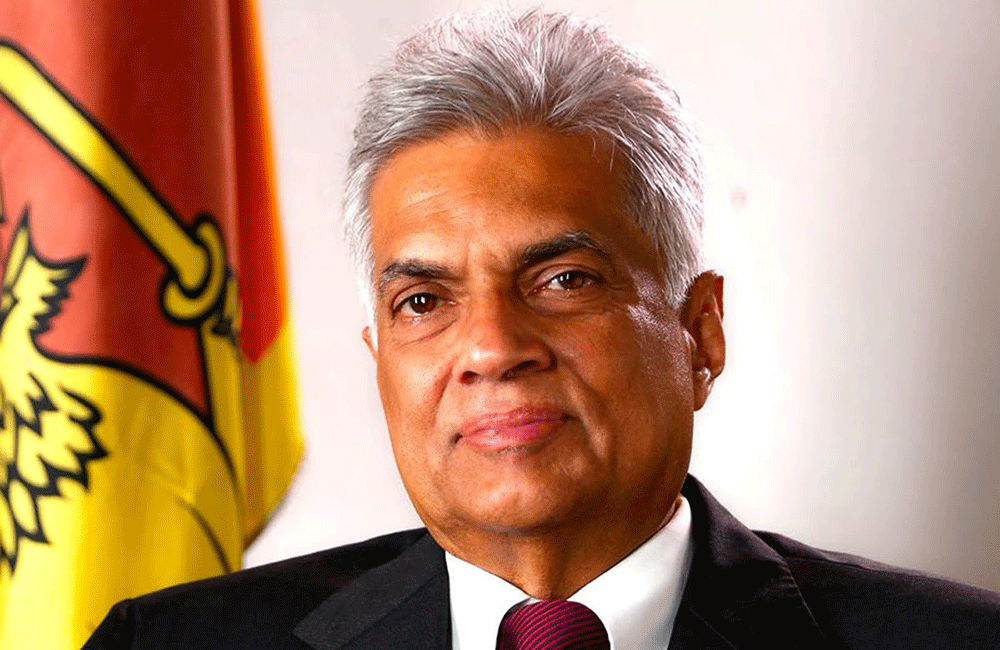
President no longer has the power to remove the Prime Minister at his discretion; Legal Fraternity opines
Since the passage of the 19th Amendment, the President no longer has the power to remove the Prime Minister at his discretion, the legal fraternity has opined in the wake of the controversial removal of Prime Minister Ranil Wickremesinghe.
According to them, Article 42(4) of the Constitution provides for the appointment of the Prime Minister as follows:
The President shall appoint as Prime Minister the Member of Parliament, who, in the President’s opinion, is most likely to command the confidence of Parliament.
Upon the Prime Minister being appointed,Article 46(2) of the Constitution provides that:
The Prime Minister shall continue to hold office throughout the period during which the Cabinet of Ministers continues to function under the provisions of the Constitution unless he -
(a) resigns his office by a writing under his hand addressed to the President; or
(b) ceases to be a Member of Parliament.
The Cabinet of Ministers will continue to function unless it is dissolved in terms of Article 48(2) of the Constitution:
If Parliament rejects the Statement of Government Policy or the Appropriation Bill or passes a vote of no-confidence in the Government, the Cabinet of Ministers shall stand dissolved, and the President shall, unless he has in the exercise of his powers under Article 70, dissolved Parliament, appoint a Prime Minister, Ministers of the Cabinet of Ministers, Ministers who are not members of the Cabinet of Ministers and Deputy Ministers in terms of Articles 42, 43, 44 and 45.
Therefore, once a Prime Minister is appointed, his office is vacated only if he dies, resigns, ceases to be a Member of Parliament, or if Cabinet stands dissolved in the event Parliament rejects the Statement of Government Policy or the Appropriation Bill or passes a vote of no-confidence in the Government.
In the absence of these specified circumstances the Office of Prime Minister does not become vacant, and as such no other Member of Parliament can be sworn in as Prime Minister.
With regard to National Governments,Article 46(4) of the Constitution provides that:
Notwithstanding anything contained in paragraph (1) of this Article, where the recognized political party or the independent group which obtains highest number of seats in Parliament forms a National Government, the number of Ministers in the Cabinet of Ministers, the number of Ministers who are not Cabinet of Ministers and the number of Deputy Ministers shall be determined by Parliament.
Thus, the only difference in a National Government is that the number of Ministries can be increased by Parliament. If a coalition ceases to exist the only consequence will be that the number of Ministries must revert to the Constitutionally mandated norm {Article 46(1)}.
Even if a National Government (coalition) ceases to exist, such does not have any impact on the continuity of the Cabinet of Minister. Article 46(4) makes no provision for the dissolution of Cabinet (unlike Article 48(2)).
It is clear that the Constitution seeks to vest Parliament, and no other, with the power to determine the fate of the Government / continuity of Cabinet.
Hence, Article 43(3) of the Constitution dealing with subjects and functions provides that:
The President may at any time change the assignment of subjects and functions and the composition of the Cabinet of Ministers. Such changes shall not affect the continuity of the Cabinet of Ministers and the continuity of its responsibility to Parliament.
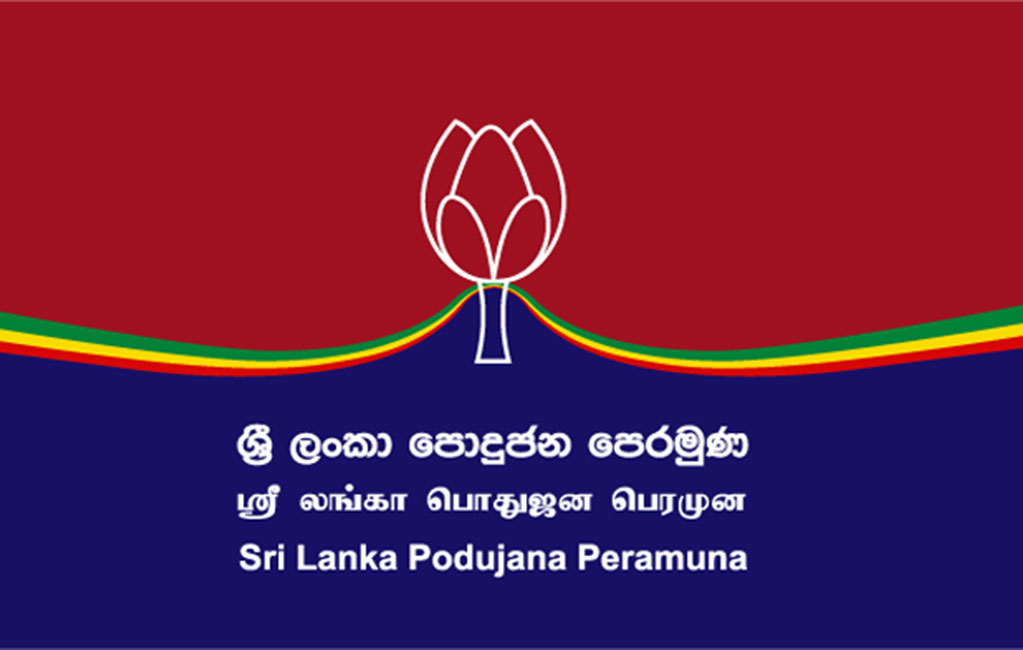
SLPP loyalists forcibly take over state media institutions
Sri Lanka Podujana Peramuna (SLPP) loyalists have taken control of most state media institutions after the swearing-in of Mahinda Rajapaksa as Prime Minister. SLPP union leaders or members at state media institutions, including Lake House,
Sri Lanka Rupavahini Corporation (SLRC), Independent Television Network (ITN) and the Sri Lanka Broadcasting Corporation (SLBC), were issuing directives while previously appointed staff members in senior positions kept away from work yesterday. SLPP union members moved in swiftly to take control of the institutions soon after President Maithripala Sirisena swore in Mr. Rajapaksa as the new Prime Minister on Friday evening.
A senior Lake House source said a group of SLPP loyalists within Lake House had barged into the layout section of the Daily News on Friday night and forcibly changed the layout of yesterday’s edition. The SLPP union members had told Lake House staff that they were acting under orders from the new Prime Minister’s office through Kandy District MP and former Media Minister Keheliya Rambukwella.
Yesterday, staff at the Sunday Observer, too, had been pressured by the SLPP faction to repeat a story of Rajapaksa being sworn in, though it had been pointed out it was now “stale news.” They had also been warned not to report any stories regarding Ranil Wickremesinghe or UNP Ministers as Cabinet now stood dissolved. Senior journalists at the paper had reportedly protested over these demands from unions.
Meanwhile, at ITN, several journalists were also forced out by fellow staff members affiliated to the SLPP. Subash Jayawardena, ITN’s Deputy General Manager (DGM) – News and Current Affairs, told the Sunday Times he received warnings on Friday night that he and certain other employees were about to be attacked. “I was warned to leave, and I took two other staff members who were also at risk with me. As we were leaving in the office vehicle, we were stopped at the gate by Rajapaksa supporters who ordered us out of the vehicle, shouting that our time was done. However, some other ITN staff members intervened and they managed to help us leave the premises safely,” he explained. Mr Jayawardena said several other staff members were also forcibly evicted by the union.
At the Sri Lanka Rupavahini Corporation, SLPP-affiliated staff and a group of outsiders accosted several UNP ministers and MPs, including Mangala Samaraweera, Ranjith Maddumabandara and Chathura Senaratne. Mr Maddumbandara claimed they were visiting the state-run channel following Friday evening’s political developments when they ran into the group. “They grew very aggressive and there was a heated exchange of words, but we did not intend to get involved in a conflict. So we left the premises,”Mr. Maddumabandara said.
Rupavahini Chairperson Inoka Sathyangani, ITN Chairperson Thilaka Jayasundara, its Chief Executive Officer (CEO) Chandana Thilakarathna and several other senior officials had not been to their institutions since the crisis on Friday, sources said.
Mr Rambukwella, however, claimed the UNP MPs had “invaded” the Rupahavahini Corporation in a bid to plant stories in the news bulletins. This caused agitation among the employees, he alleged. “They claim we intimidated them, but I would classify what they did as intimidation,” he said. He also said he explained the situation to Lake House journalists who sought clarification from him over the new political developments. (Sunday Times)
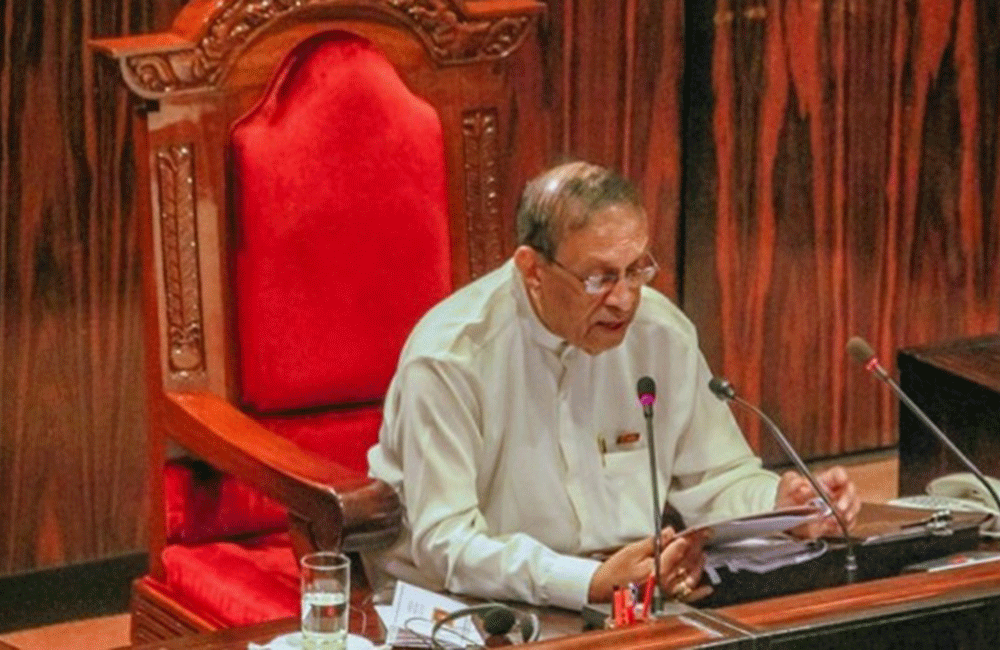
Speaker recognises Ranil Wickremesinghe as Prime Minister
Speaker Karu Jayasuriya recognised Ranil Wickremesinghe as the country's lawful prime minister today (28), three days after his sacking by President Maithripala Sirisena threw the island into constitutional chaos.Wickremesinghe says his shock dismissal on Friday was illegal, and ignored a deadline to vacate the official residence Sunday -- instead holding crisis meetings with allies to gather support.
Speaker Karu Jayasuriya said Wickremesinghe's request to retain the security and privileges of prime minister was fair until another candidate could prove a majority in parliament.
"I consider the said request to be a democratic and fair request," Jayasuriya said in a letter addressed to President Maithripala Sirisena, who dismissed Wickremesinghe on Friday.
Jayasuriya also warned the president that shutting parliament for nearly three weeks would exacerbate the political crisis gripping the Indian Ocean nation.
Shortly after firing Wickremesinghe, the president went on to appoint his former rival Mahinda Rajapakse as the new prime minister, and suspended parliament to forestall any challenge against his appointment.
The speaker recognised Wickremesinghe "as the leader of the government who has obtained a mandate to secure democracy and good governance."
Jayasuriya holds a neutral position as speaker, but did originally hail from Wickremesinghe's United National Party (UNP) which until Friday ruled Sri Lanka in a coalition with Sirisena.
Sirisena has also ordered the withdrawal of security and vehicles allocated to Wickremesinghe as prime minister.
Wickremesinghe had demanded an early meeting of parliament to prove his majority, but Sirisena had instead suspended parliament.
"Continuing the prorogation (suspension) of parliament until 16th November will have serious and undesirable consequences for our country, and I kindly request you to reconsider same," Jayasuriya told the president.
He also noted that Sirisena had failed to consult him before suspending parliament.
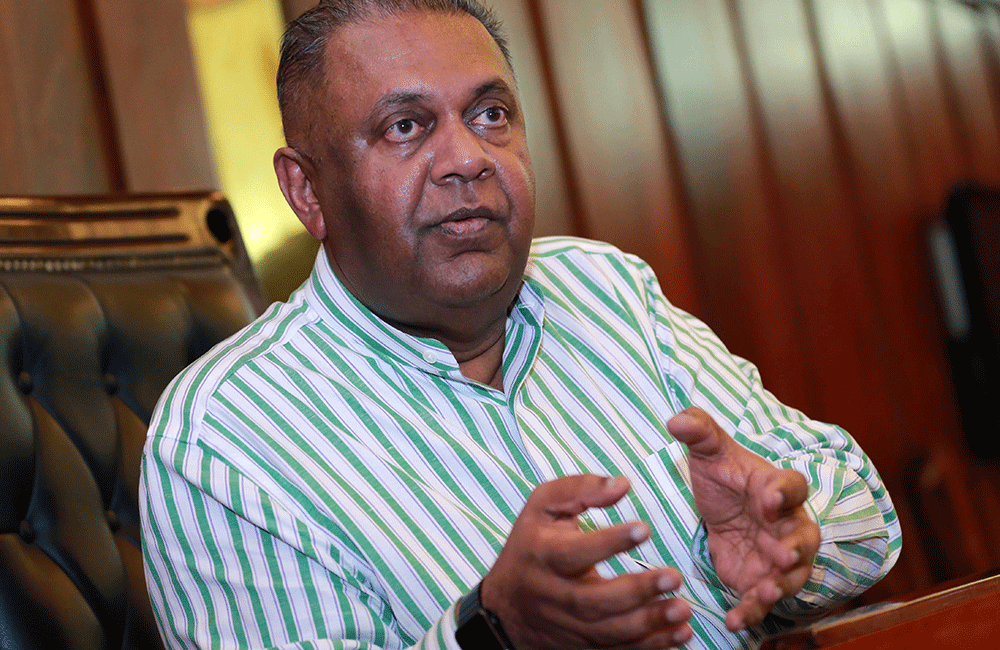
Coup triggered by President unconstitutional: Mangala (Video)
In a special statement today, Finance and Media Minister Mangala Samaraweera stated that the constitutional coup triggered by the President Maithripala Sirisena last night (26), is unconstitutional and anti-democratic.
Samaraweera reiterated that the majority of the government, including all constituent parties of the United National Front, stand with Prime Minister Ranil Wickremesinghe.
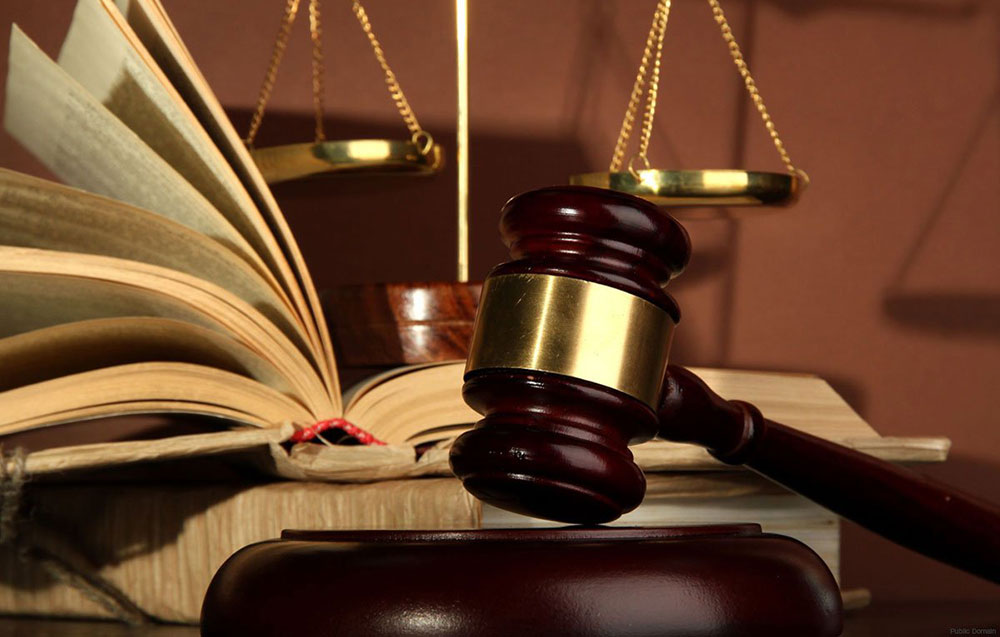
President in violation of the Constitution, convene parliament immediately: Lawyers for Democarcy
Lawyers for Democracy (LfD), convened by leading constitutional experts including Lal Wijenayaka, JC Weliamuna, and Sunil Jayarathna today (Oct. 28th) in Colombo and concluded that the recent attempted removal of Prime Minister Hon. Ranil Wickremesinghe and the concurrent appointment of a new Prime Minister is a clearly unconstitutional and undemocratic action which has resulted in a grave constitutional crisis impacting the rights of all peoples of the country. LfD urges the President H.E. Mathripala Sirisena to de-escalate the crisis by respecting the constitution and summoning parliament.
Lawyers for Democracy purports the illegality of the appointment on 4 grounds:
1) The 19th Amendment to the Constitution was made intentionally to restrict the President’s powers in relation to Parliament and Cabinet, including in the appointment and removal of the Prime Minister. The 19th Amendment ensures that the arbitrary exercise of power by executive Presidents is not to undermine the basic democratic governance.
2) The concept of a ‘Unity Government’ as outlined in the 19A, is not linked to the appointment or removal of a Prime Minister. The ending of the Unity Government is not direct cause for the dissolution of cabinet or the removal of the Prime Minister as is being claimed.
3) According to Article 42(4) of the Constitution of Sri Lanka, the appointment of a new Prime Minister can only arise under specific conditions – none which were present in this case. Thus the appointment of a new Prime Minister by the President is void.
4) The Interpretation Ordinance that is also being cited is also not applicable in this case.
Additionally, given the illegality and constitutional violation that has occurred, any further actions by the President to appoint Ministers without the advice of a constitutionally appointed Prime Minister also lacks legality and is void.
For clarifications, contact Lawyers for Democracy Convener Lal Wijenayaka at 0777812010.
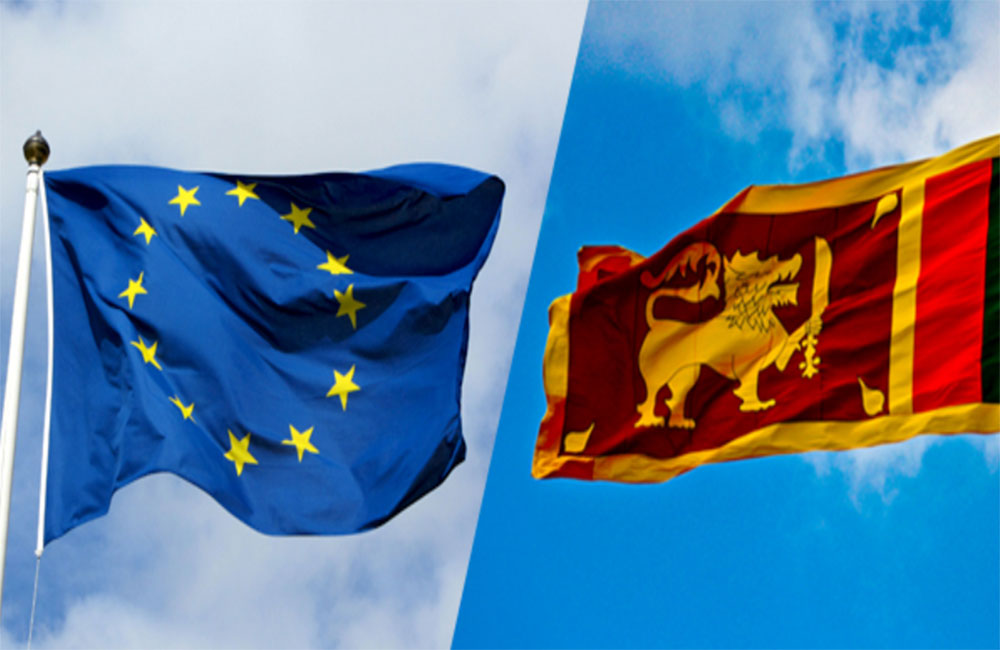
Act in accordance with Sri Lanka’s constitution: EU
The European Union called all parties concerned to act in accordance with Sri Lanka's constitution while following due institutional process.
"The Ambassador of the European Union as well as the Ambassadors of France, Germany, Italy, the Netherlands, Romania and the UK High Commissioner are closely following the events as they are unfolding in Sri Lanka. We urge all parties to fully act in accordance with Sri Lanka’s constitution, to refrain from violence, to follow due institutional process, to respect the independence of institutions, and freedom of media", the statement released by EU said.

Chinese ambassador plays double games
Following the swearing in of Kurunegala MP Mahinda Rajapaksa as Sri lanka's Prime Minister in what can only be described as a political coup the Chinese ambassador to Sri Lanka visited him at his official residence to congratulate Rajapaksa yesterday at his Wijerama residence.
How ever the same evening he visited Prime Minister Ranil Wickramasinghe at Temple Trees and assured the Chinese governments continues support to him and his government. He even requested Wickramasinghe to carry out his duties as the PM of Sri Lanka.
Many political commentators online have been commenting on the duplicity of the Chinese through this move to appease both fractions.
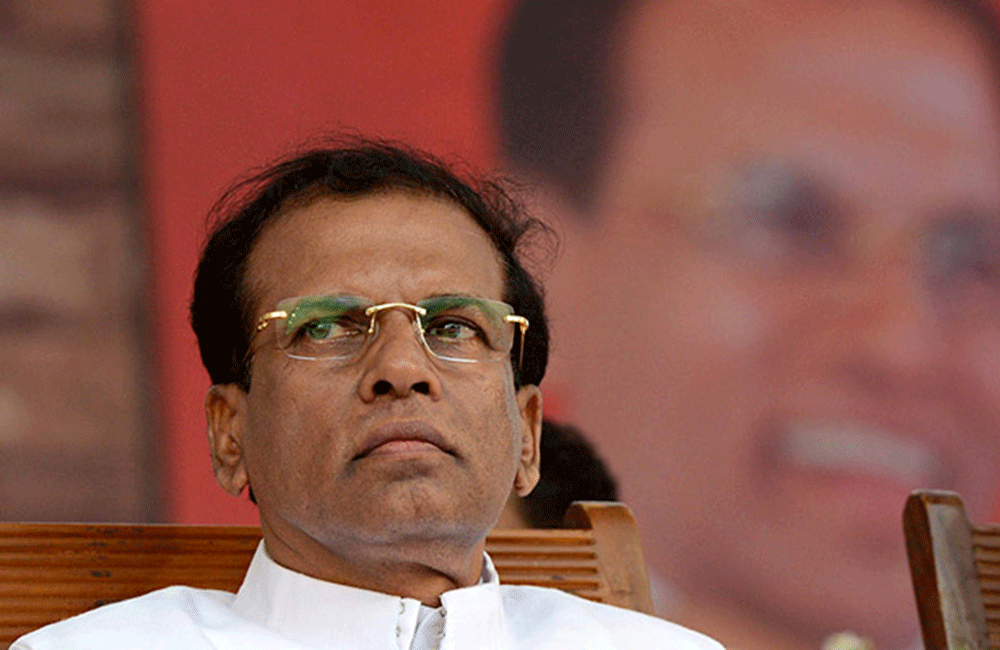
Group of SLFP MPs to back Prime Minister Wickremesinghe; Four confirmed
A group of parliamentarians from the Sri Lanka Freedom Party is preparing to defeat the constitutional coup by aligning themselves with Prime Minister Ranil Wickremesinghe, sources within the SLFP said today.
It is also learnt that four parliamentarians have already pledged their support to Wickremesinghe.
It is reported that certain SLFP parliamentarians, who were blindsided by President Maithripala Sirisena’s anti-democratic actions, are willing to defect as a show of dissent.
Page 376 of 510
